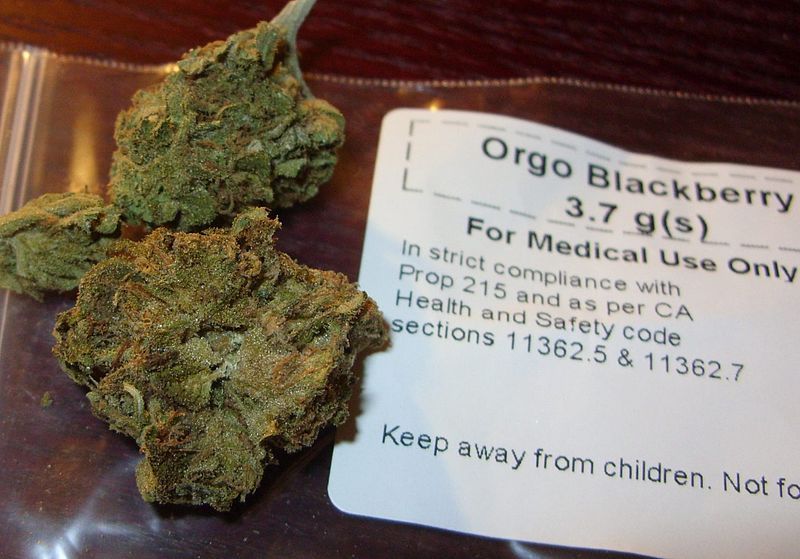Locate a Nearby Medical Marijuana Dispensary for Quality Products
Locate a Nearby Medical Marijuana Dispensary for Quality Products
Blog Article
Shedding Light on What Medical Cannabis Can Heal: an In-Depth Analysis of Its Healing Characteristics
In recent years, there has actually been an expanding passion in the restorative potential of clinical marijuana. While unscientific proof abounds, a comprehensive assessment of the clinical data relating to the performance of clinical marijuana in treating these problems is necessitated.
Persistent Discomfort Administration
Persistent pain administration remains a crucial aspect of medical care, requiring a comprehensive technique for efficient therapy. Over the last few years, clinical cannabis has actually arised as a prospective restorative option for individuals experiencing persistent pain problems. The endocannabinoid system, which plays a vital function hurting inflection, has been targeted by cannabis-based therapies to ease signs and symptoms and enhance high quality of life for clients.

Additionally, medical marijuana uses an appealing option for clients that experience intolerable adverse effects from conventional pain medications. Its capability to attend to discomfort with a different device makes it a valuable enhancement to the arsenal of treatments offered for persistent pain management.
Epilepsy Therapy Possible
Medical marijuana has actually shown appealing possibility in the treatment of epilepsy, using a novel restorative strategy for managing seizures in individuals. Epilepsy is a neurological problem identified by recurrent seizures, affecting people of any ages. Traditional treatments for epilepsy include antiepileptic drugs, yet these medications may not work for all people and can have significant negative effects.
Research on making use of medical cannabis for epilepsy has actually revealed encouraging results. Cannabidiol (CBD), a non-psychoactive substance found in marijuana, has actually been especially highlighted for its anticonvulsant homes. Research studies have shown that CBD can decrease the frequency and extent of seizures in clients with treatment-resistant kinds of epilepsy, such as Dravet syndrome and Lennox-Gastaut disorder.
Furthermore, the FDA has approved a CBD-based medication, Epidiolex, for the treatment of seizures related to these severe types of epilepsy. This landmark emphasizes the growing acknowledgment of medical marijuana as an important healing choice for taking care of epilepsy and supplies expect clients who have not reacted well to standard treatments.
Nausea Alleviation Benefits
The reduction of queasiness with the use of cannabis has been increasingly identified for its restorative advantages in numerous medical conditions. Nausea or vomiting and vomiting prevail signs and symptoms experienced by individuals undergoing radiation treatment, those with food poisonings, and people with persistent pain conditions. Clinical cannabis, with its energetic compounds such as THC and CBD, has actually revealed pledge in offering remedy for queasiness.

Furthermore, medical marijuana offers a natural choice for individuals that do not respond well to traditional anti-nausea medications or that experience serious negative effects from these drugs. Patients going through chemotherapy, particularly, have reported substantial enhancements in their quality of life when making use of cannabis to handle nausea. As research in this area proceeds to expand, medical marijuana is progressively being considered as a valuable choice for nausea relief in various clinical setups.
Stress And Anxiety Reduction Impacts
Studies have shown the possibility of cannabis in minimizing anxiousness symptoms with its communication with the endocannabinoid system. The endocannabinoid system plays a vital function in managing emotions, including anxiety, by maintaining homeostasis in the body. Cannabinoids in cannabis, such as THC and CBD, engage with the endocannabinoid receptors her response in the mind, specifically the CB1 and CB2 receptors, to modulate anxiety-related responses.

Patients with conditions like generalized stress and anxiety condition (GAD), social anxiousness problem, and trauma (PTSD) may take advantage of the anxiolytic homes of marijuana (Medical Marijuana near me). However, further study is needed to identify optimal dosages, delivery methods, and long-lasting impacts on anxiety management.
Potential for Swelling Control
With its known anti-inflammatory buildings, marijuana has revealed pledge in possibly regulating inflammation within the body. Swelling is the body's all-natural reaction to injury or infection, however when it ends up being chronic, it can add to different diseases such as joint inflammation, inflammatory bowel condition, and also cardiovascular disease. Research recommends that the cannabinoids found in marijuana, such as THC and CBD, can help regulate the immune feedback and decrease inflammation.
Research studies browse around this site have shown that cannabis can engage with the endocannabinoid system, which plays an essential role in regulating swelling. By targeting the cannabinoid receptors, cannabis substances can modulate the immune action, leading to a decline in swelling levels. This makes cannabis a possible candidate for handling inflammatory problems where typical therapies have fallen short.
In addition, cannabis-derived products like CBD oil have obtained popularity for their anti-inflammatory residential properties, with numerous people utilizing them as a natural treatment for problems related to swelling. While even more study is required to fully recognize the mechanisms behind cannabis's anti-inflammatory impacts, existing searchings for reveal appealing results for the potential use of clinical cannabis in regulating swelling.
Conclusion
Finally, clinical marijuana has shown appealing restorative properties in managing chronic pain, treating epilepsy, eliminating nausea or vomiting, decreasing anxiousness, and managing inflammation. Its potential benefits in various clinical problems highlight the importance of further research and exploration into its medicinal usage. The evidence suggests that clinical cannabis might be a useful choice therapy choice for people seeking remedy for a range of symptoms and problems.
In recent years, medical marijuana has actually arised as a possible healing alternative for people experiencing from chronic discomfort problems.Clinical cannabis has revealed encouraging possibility in the therapy of epilepsy, providing an unique restorative method for taking care of seizures in patients. As research in this location continues to grow, clinical marijuana is progressively being thought about as an important option for nausea alleviation in different medical setups.
In final thought, medical cannabis has Get More Info shown appealing restorative homes in taking care of chronic pain, dealing with epilepsy, easing queasiness, minimizing stress and anxiety, and managing inflammation. The proof recommends that clinical cannabis can be a useful choice therapy option for people seeking relief from a range of problems and signs.
Report this page